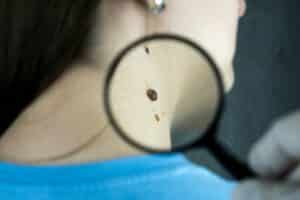What Does a Dermatologist Do? A Complete Guide to This Essential Medical Specialty
If you’ve ever wondered, “What does a dermatologist do?” you’re not alone. While many people associate dermatologists with acne treatments or cosmetic procedures, the reality is that dermatology is a broad and essential medical specialty that covers far more than just skincare. It’s not all Botox and bon bon!
In this article, we’ll explore what a dermatologist is, what they treat, the types of procedures they perform, and why it matters whether your dermatologist is board-certified. Whether you’re struggling with a stubborn rash, worried about a suspicious mole, or seeking treatment for hair loss, understanding the scope of dermatology can help you get the care you need.
What Is a Dermatologist?
A dermatologist is a physician who specializes in diagnosing and treating conditions of the skin, hair, and nails. This medical field is called dermatology, and it encompasses a wide variety of diseases and concerns, from common to complex.
To become a board-certified dermatologist, a doctor must complete:
- Undergraduate education
- Medical school (4 years)
- Internship (1 year)
- Residency in dermatology (3 years or more)
- Passing the board certification exam in dermatology
- Ongoing continuing medical education and maintenance of certification
Board certification ensures a dermatologist has met rigorous standards and stays up-to-date in this fast-evolving field.

What Conditions Do Dermatologists Treat?
Dermatologists care for patients of all ages, genders, and ethnic backgrounds. They diagnose and treat more than 3,000 diseases involving the skin, hair, and nails. Some of the many conditions they address include:
- Acne and rosacea
- Eczema, psoriasis, and rashes
- Skin cancer, including melanoma
- Blistering diseases (e.g., pemphigus, bullous pemphigoid)
- Sexually transmitted infections (STIs)
- HIV/AIDS-related skin disorders
- Hair loss (alopecia)
- Nail disorders
- Leprosy
- Vitiligo and pigmentation disorders
- Skin infections (bacterial, viral, fungal)
- Autoimmune skin diseases
Dermatologists also use tools like biopsies, dermoscopy, microscopy, phototherapy, and laser therapy in diagnosis and treatment.

Medical vs. Cosmetic Dermatology
Medical dermatology focuses on diagnosing and treating diseases of the skin, hair, and nails. This includes managing chronic illnesses, detecting skin cancer, and treating infections.
Cosmetic dermatology, on the other hand, addresses appearance-related concerns. These may include:
- Wrinkle reduction (e.g., Botox, fillers)
- Laser hair removal
- Chemical peels
- Microneedling
- Scar revision
- Skin tightening and resurfacing
Both areas are important, and many dermatologists practice in both medical and cosmetic settings.
What Makes Dermatology Unique?
Dermatology is somewhat unique among medical specialties in that it combines three distinct roles:
- Cognitive medicine – Clinical diagnosis through visual and tactile examination.
- Surgical procedures – Including biopsies, excisions, and reconstructive procedures.
- Dermatopathology – Interpreting skin samples under the microscope to aid diagnosis.
This blend of medical, surgical, and microscopic skills makes dermatology both intellectually demanding and highly specialized.
Subspecialties Within Dermatology
Some dermatologists undergo additional training or board certification in specific areas of dermatology. Recognized subspecialties include:
1. Dermatopathology
Dermatopathologists are experts in diagnosing skin diseases at the microscopic level. They interpret biopsies to provide critical insights into conditions like cancer, infections, and inflammatory diseases.
2. Mohs Micrographic Surgery
Mohs surgeons specialize in a highly precise surgical technique used to remove skin cancers while preserving as much healthy tissue as possible. This is particularly useful for cancers in cosmetically sensitive areas like the face.
3. Pediatric Dermatology
Pediatric dermatologists focus on diagnosing and managing skin conditions in infants, children, and adolescents. This includes rare genetic diseases and common issues like diaper rash, warts, and birthmarks.
These subspecialties often involve additional board certification and fellowship training.
Other recognized dermatology subspecialties that may have certification options include:
- Cosmetic dermatologic surgery (via the American Board of Cosmetic Surgery)
- Immunodermatology (focused on autoimmune skin diseases, though formal certification is less common)
Specialty Areas Without Specific Certifications
While some areas of dermatology do not have dedicated board certifications, they still represent highly complex and important niches that dermatologists may focus on. These include:
- Hair and scalp disorders (trichology)
- Blistering diseases (immunobullous diseases)
- Leprosy (Hansen’s disease)
- Pigmentation disorders
- Cutaneous lymphoma
These fields require advanced expertise even without a formal subspecialty board.
Why Board Certification Matters
Although any physician can claim to practice dermatology, and some non-physicians offer cosmetic skin treatments, only board-certified dermatologists complete formal specialty training and meet the ongoing standards of professional certification.
Choosing a board-certified dermatologist ensures that your care provider has:
- Undergone rigorous, accredited training
- Passed comprehensive exams
- Committed to ongoing medical education and ethics
- Experience with complex dermatologic conditions and procedures
To verify a dermatologist’s credentials, you can check with the American Board of Dermatology (ABD).
Final Thoughts
So, what does a dermatologist do? In short: a lot. From treating acne to diagnosing rare skin diseases, performing skin cancer surgery, interpreting biopsies, managing hair loss, and offering cutting-edge cosmetic procedures, dermatologists are highly trained physicians who provide expert care for one of the body’s most complex and visible organs—your skin.
Whether you’re seeking medical advice or cosmetic improvement, always look for a board-certified dermatologist like Dr. Dina Strachan of Aglow Dermatology to ensure you receive the highest standard of care. Schedule an appointment in our New York City office here!


